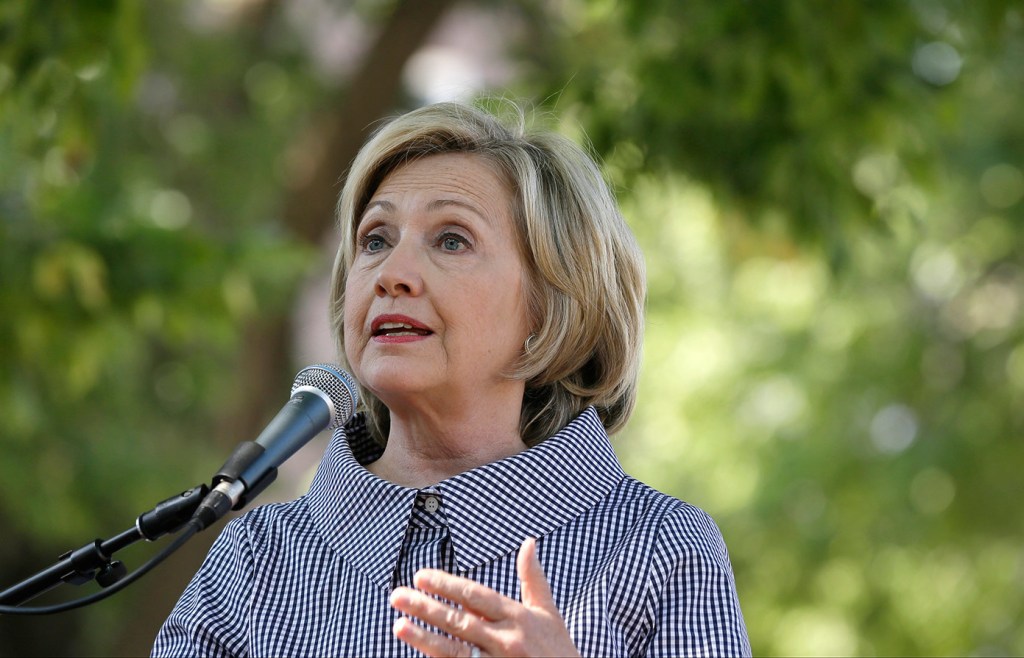One of the good things – maybe the only good thing – about our permanent presidential campaigns is that eventually, every candidate will be caught on camera telling the truth.
Hillary Clinton’s turn came in a video recording of her having a frank discussion with Black Lives Matter activists after an event in New Hampshire.
Without the plastered-on smile and robotic wave she reserves for public events, she explained her view of how a society changes. She did not answer the activists’ questions to their satisfaction, but she did offer an inside view of how power works and what kinds of change are achievable and what she considers beyond reach.
Clinton was pressed to explain how she squares her current positions against the mass incarceration of minorities with her support for the 1990s crime bills that toughened drug-related sentences, hitting minority communities especially hard. The activists wanted to know what had changed in her heart that led to her reversal on policy.
Clinton responded: “Look, I don’t believe you change hearts. I believe you change laws, you change allocation of resources, you change the way systems operate. You’re not going to change every heart. You’re not. … You can keep the movement going, which you have started, and through it you may actually change some hearts. But if that’s all that happens, we’ll be back here in 10 years having the same conversation.”
OK, so not exactly the Gettysburg Address, but it’s revealing.
Clinton is talking about incremental progress achieved by tweaks to laws, systems and allotment of resources. In her view, it’s not a moving speech that changes the course of history, but the dogged detail work that edges a slow-moving government in the right direction.
The video has been compared to the one that caught Mitt Romney in 2012 saying that he didn’t bother talking to the bottom 47 percent of wage earners, who don’t pay federal income taxes.
If Republicans hope that the Clinton video will create as big a scandal as the Romney recording, they are going to be disappointed. Clinton did not say anything that will hurt her as badly as Romney’s riff on the lazy poor did him. But the two recordings are similar in that they both show a high-level politician explaining that democracy is not as much a war of ideas as it is about getting the right people to show up.
Romney’s talk for a group of wealthy donors went like this:
“There are 47 percent of the people who will vote for the president no matter what. All right, there are 47 percent who are with him, who are dependent upon government, who believe that they are victims, who believe that government has a responsibility to care for them, who believe that they are entitled to health care, to food, to housing, to you name it …
“So our message of low taxes doesn’t connect … And so my job is not to worry about those people – I’ll never convince them that they should take personal responsibility and care for their lives.”
Is it true? Do people’s hearts really never change?
My heart would tell me that they are both wrong. In my lifetime I have seen tremendous social change, most recently the victory of marriage equality for lesbian and gay Americans.
I’ve seen the proof right before my eyes here in Maine. In 2009, a same-sex marriage law was defeated at the polls, 53 percent to 47 percent. Three years later, 53 percent of voters said “yes” to marriage. Doesn’t that show that hearts changed?
They may have, but the numbers don’t show it. In both elections, there were roughly the same number of anti-gay marriage votes (300,848 in 2009 and 334,049 in 2012). But there were more than 100,000 more pro-marriage equality votes in 2012, going from 267,828 to 370,770.
Did hearts change, or did more people just show up on Election Day?
Both videos confirmed people’s prejudices about both candidates. Romney came across as a plutocrat who thinks only people with high incomes can fully comprehend the nation’s problems. Those who think Clinton is cold and calculating – putting intellectual victories ahead of emotional ones – had plenty of evidence to work with.
But I came away from it feeling that I understood her more than I ever have. She came across as someone who knows from hard experience how the system works and how to answer calls for change in the streets with the kinds of behind-the-scenes machinations that could really make a difference.
I’m not sure she changed my heart, but she has given me something to think about.
Send questions/comments to the editors.


